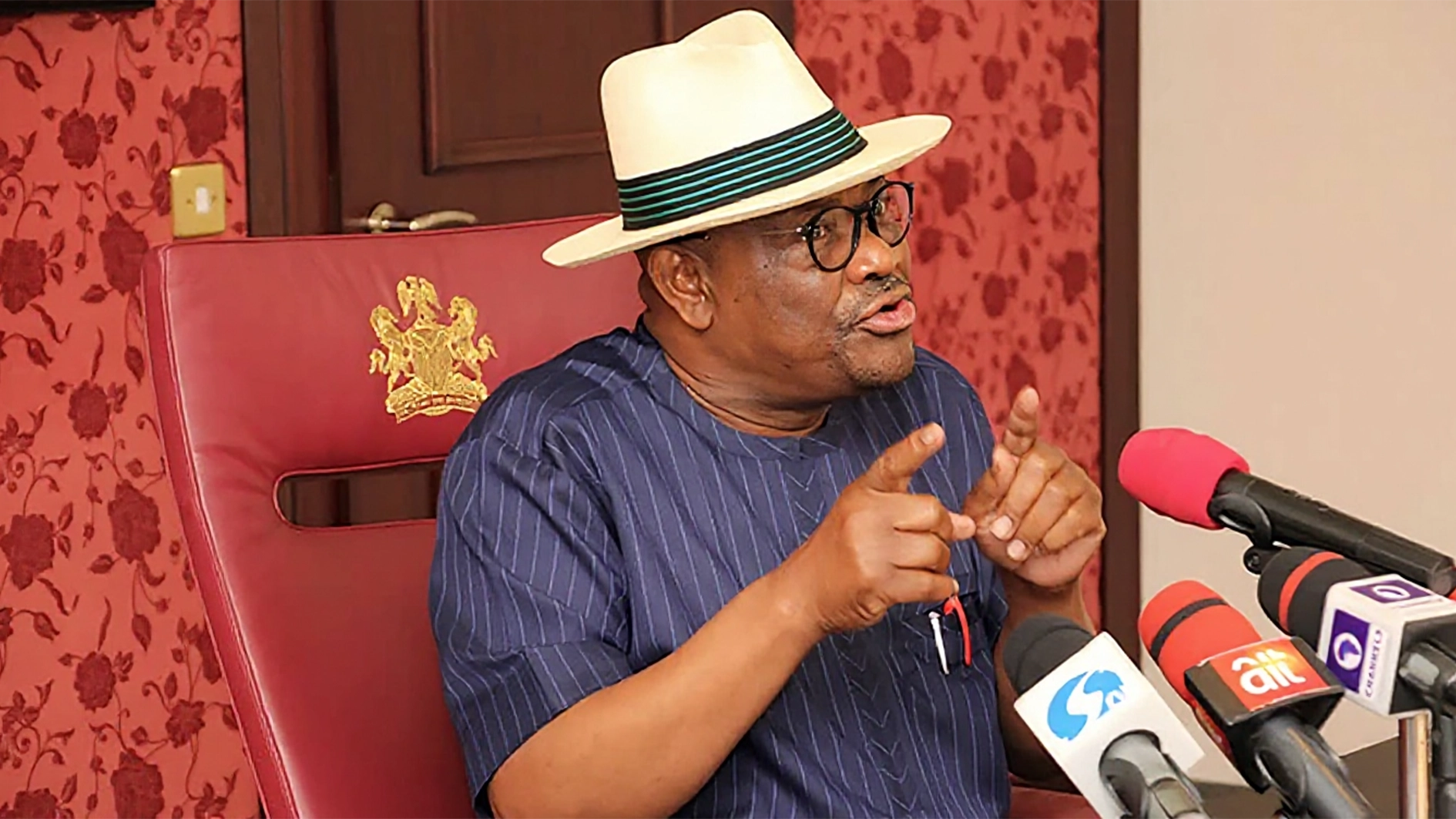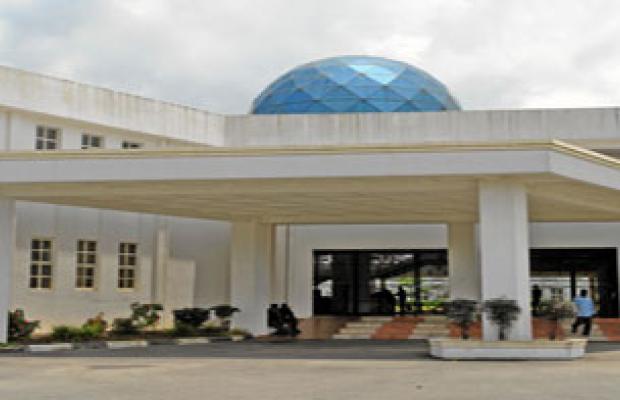As the 2027 elections get closer, many old names will return. Some will try to win back power. Some will say they’ve changed. Some will promise to fix what they broke. New names will also appear but not everyone stays in that spotlight forever.
When their time in office ends, some choose to step back quietly. Some want to focus on their families, businesses, or new goals. Others take a break to rethink their future or work behind the scenes. Some vanish because of scandals or corruption investigations, or just disappear, leaving behind good and bad memories.
This is a look at politicians who once sat in the seat of power, but now, few know where they are.
1) Patricia Etteh

In 2007, Patricia Etteh made history as the first female Speaker of the House of Representatives. This was a big deal because men usually lead in politics.
But her time as Speaker was short. Only four months after she started, Etteh was accused of signing off on a contract that would see the spending of N628m for the renovation of her official home and that of her deputy, as well as the purchase of 12 official vehicles.
Etteh, however, insisted that the award of the contract did not follow due process, but the court of public opinion was unforgiving as people mocked her, calling her an “illiterate hairdresser.” Some even alleged that she got the job because she had a love relationship with former President Olusegun Obasanjo.
Two weeks before she resigned, Lisa Piascik, then Chargé d’Affaires of the U.S. Embassy in Nigeria, reported to Washington that the Speaker was indeed in a love affair with the former president.
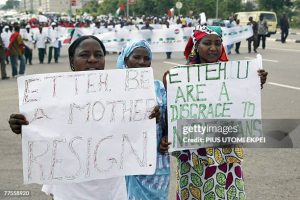
The U.S. official described her as a “former hairdresser, romantic interest of Obasanjo, current Speaker of the House of Representatives” in an October 19, 2007, cable to Washington.
Following her resignation, Etteh stepped back from the spotlight. In 2012, she quietly returned to school in the UK to study law. When asked about it, she declined to comment at the time, stating, “Sweetheart, I am not interested in granting any interview. As far as my private life is concerned, I am not interested.”
However, in a 2016 interview with The Punch, she reflected on her time in office, saying, “I will not do anything differently because the people that were behind the mischief of removing me from the office have apologised. So, it means that what I did, I did it right. Some of them were very afraid of my position because they knew I was practically ready to change all the dirty things they were doing. They thought Oh, if they allow this lady to go further, they may not have all the goodies they thought they were enjoying because the cake belongs to everybody.”
In 2022, she was in the news again when the Economic and Financial Crimes Commission (EFCC) arrested her for a corruption allegation linked to a project in Akwa Ibom State for allegedly receiving a suspicious N130 million payment from a contractor. She was released after meeting bail conditions and is reportedly helping with the investigation.
Since then, she has not tried to come back to politics or tell her side of the story, and today, many Nigerians under 30 would not recognise her name.
2) Jolly Tavoro Nyame
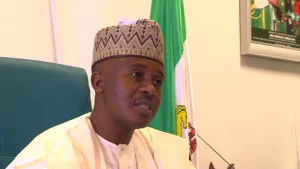
Farouk Lawan was a lawmaker from Kano State who served in the House of Representatives starting in 1999. In 2012, he gained fame as head of the committee investigating fuel subsidy fraud. The public saw him as a brave anti-corruption fighter. But everything changed that same year. A video surfaced showing Lawan accepting $620,000 in cash from oil business mogul, Femi Otedola. Otedola claimed Lawan had demanded $3 million to remove his company, Zenon Petroleum, from a list of corrupt firms.
The nation was shocked. Lawan, once a hero, was now accused of corruption. The case dragged on for nearly 10 years. In June 2021, he was found guilty and sentenced to seven years in prison. The court also ordered him to return $500,000 to the government.
Lawan regained freedom on October 22, 2024, after serving a five-year sentence. When he visited his home constituency, he said, “Prison made me a better person. Today, I am a better person, and I thank God for everything. My visit is not political but rather to pay condolences, sympathise with the sick, and pay homage to our fathers and traditional leaders.”
Lawan also stated that he is only “freelancing in politics for now; I don’t belong to anybody.”
3) Jolly Tavoro Nyame
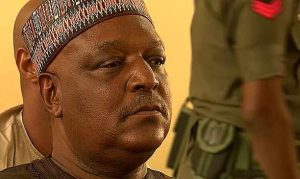
“…I must say that I am morally outraged by the facts of this case; the people of Taraba State had elected the defendant, a clergyman, on three different occasions; their expectations must have been very high.
“How would he begin to explain to the people of Taraba State his actions? How would he explain such a colossal loss to the people?…”
These were the words of Justice Adebukola Banjoko of the Abuja Federal High Court, delivering her ruling on a case brought by the Economic and Financial Crimes Commission (EFCC) against a former governor of Taraba State, who was also a reverend.
Jolly Tavoro Nyame first entered politics in 1991 and won the governorship of Taraba State in 1992 during Nigeria’s short-lived Third Republic. His term was cut short by a military takeover in 1993.
In 1999, Nyame ran again as a candidate of the Peoples Democratic Party and won. He was re-elected in 2003, becoming the only person to win three governorship elections in Taraba State.
After leaving office in 2007, Nyame was charged with 41 counts of fraud involving ₦1.64 billion. He admitted in 2007 to misappropriating ₦180 million out of ₦250 million meant for stationery in Taraba state and offered to return the same.
On 30 May 2018, Justice Banjoko convicted Nyame at the Federal Capital Territory High Court in Abuja and sentenced him to 14 years in prison with orders to refund the embezzled funds.
In November 2018, the Court of Appeal in Abuja affirmed his conviction on 29 counts. The Appellate court, however, reviewed the sentences imposed by the trial court and sentenced him to 5 separate 12-year terms of imprisonment, which were to run concurrently instead of the initial 14-year Jail term, and ordered him to pay a fine of ₦185 million.
On 7 February 2020, the Supreme Court affirmed the 12-year jail term Judgment and set aside the fines imposed on him by the courts because they were outrageous and done without any prompting.
After serving three years in prison, Nyame was granted a presidential pardon by the then-President Buhari on 14 April 2022.
Now, in 2024, during a Thanksgiving service at the Christian Association of Nigeria Secretariat in Jalingo, Nyame shared lessons he learned while incarcerated at Kuje Correctional Centre in Abuja.
He explained that the experience had bestowed invaluable lessons, shaping him into a better leader for the people of Taraba State.
Nyame stated, “I learned a lot while in Kuje Prison and in the hospital. If given another opportunity to lead the people of Taraba State, I will do better because of the experience I have gained.”
4) Joshua Chibi Dariye

Joshua Chibi Dariye used to be a powerful man. He was the Governor of Plateau State and later became a Senator representing the Plateau Central senatorial district from 2011 to 2019. But in 2018, things changed for him. He was sent to prison for stealing over ₦1.1 billion that was meant to help the people of Plateau State.
The judge, Justice Adebukola Banjoko, found him guilty of 15 out of the 23 charges on criminal breach of trust and misappropriation of public funds, but discharged him on eight, saying that Dariye acted without care for the people and used state money like it were his own.
During her ruling, which lasted eight hours, the judge said “I can’t imagine such brazen act, is it the transfer of as much as about half a billion naira from the state’s Ecological Fund into a personal venture account; there’s a litany and trail of woe, which also affects the people of Jos – the beautiful Tin City, where everybody wanted to be, and to find out that its Ecological Fund was misappropriated is the shocking aspect.”
Justice Banjoko added, “There’s a deep sense of irresponsibility; the defendant was in fact richer than his state. This is a trauma of the trial, and there should be no compromise to corruption, by whatever shade or colour, or region, rich or poor; corruption will forever be corruption.
“Every case is different on its own, and I have no personal animosity, I’m just doing my job the way I know how to, and not only the Ecological Funds [were misappropriated], but funds from the Plateau State government.”
Dariye was sentenced to 14 years in prison, to run concurrently, with no option of a fine. However, in 2022, after serving just over three years, Dariye received a presidential pardon from the then president Buhari along with Nyame.
Reflecting on his own experience, Dariye expressed gratitude for his release. “The first thing I said when I heard about the pardon was ‘To God be the glory’…..one day freedom from that environment, you can never put a value on it. Freedom is priceless. ”
He described the Nigerian correctional system as “a republic of its own”, stating that “they don’t have the best of facilities, I must say. It’s not habitable for human beings, and I think the federal government must have a look at it.”
Dariye stated, “When they talk about prison reforms, there is the need to look at the conditions, the sanitary places, the environment and the congestion. If you take people to a correctional centre, you are supposed to come out reformed, not hardened. Most of the young men there come out worse than when they went in, and I don’t think that’s the essence of taking people to prison.
“Some people wanted Jolly Nyame and myself to stay longer, but it didn’t matter. We were able to persevere. We paid the bills for the young people. Some people were there for just N10,000 or N100,000, and they were kept for years. It was an interesting experience, meeting people from different backgrounds, especially youngsters.
“I won’t say it was a worthless one. Unfortunately, I was ill and I was taken to the hospital, so I was there for a long time and it was a challenging time, but I also added value to people and the University Teaching Hospital. So, it was a rewarding experience.”
5) Diepreye Alamieyeseigha
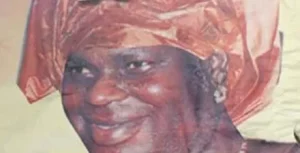
Known to many as “DSP,” which stands for Diepreye Solomon Peter, Diepreye Alamieyeseigha was once a powerful governor who ruled Bayelsa State from 1999 until 2005, when his life changed. He was arrested in London for money laundering. British police found £1 million in cash in his house and later discovered more money and expensive properties, including four homes in London worth around £10 million. Meanwhile, back in Bayelsa, many people still lived without clean water.
But the craziest part of the story is how he escaped the British government, forfeiting a £1.25m bail bond. Reports say he dressed as a woman and escaped Europe using a forged passport.
ThisDay, published a photomontage of him in a red dress, necklace, head-dress and lipstick. Some of his aides told the media that he took a train from London to Paris, then flew to Douala, a port city in Cameroon neighbouring Nigeria, where a speedboat took him home under the cover of darkness.
“Today, I am back at my desk, forever committed to serving the people of Bayelsa and Nigeria. I thank the almighty God for his protection,” said Alamieyeseigha.
Though Alamieyeseigha denied it when asked how he evaded British controls to make it back to Bayelsa, he said, “I don’t know myself. I just woke up and found myself in Amassoma.”
After he returned, he was impeached by the Bayelsa State House of Assembly on December 9, 2005. Two years later, in 2007, he pleaded guilty to six charges of corruption. He was sentenced to two years in prison for each count, but because he had already spent time in detention, he was released shortly after.
Back in Nigeria, he was impeached on 9 December 2005 for corruption. Two years later, in 2007, he pleaded guilty to six charges and was sentenced to two years in prison on each count, to run at the same time.
It was reported that Alamieyeseigha claimed he only pleaded guilty because of his age and said he would have fought the charges if he were younger.
In 2013, Ex-President Goodluck Jonathan granted Alamieyeseigha a full pardon, which many saw as a political favour, but Jonathan, speaking through his then spokesperson, Doyin Okupe, defended the move, saying, “A man was deposed. He was hounded, tried and jailed. What is wrong with giving a pardon to a remorseful sinner? How come granting a pardon to him has become an aberration? Is it because he is from Bayelsa? Is he from the South-South? Is it because he is connected to Mr. President?”
Alamieyeseigha was reported to have died of cardiac arrest at the University of Port Harcourt Teaching Hospital on 10 October 2015. However, in a later interview, Bayelsa State Information Commissioner, Esueme Kikile, revealed that the former Governor “died of complications arising from high blood pressure and diabetes which affected his kidney.”
6) Iyabo Obasanjo-Bello (Omo Baba Iyabo)
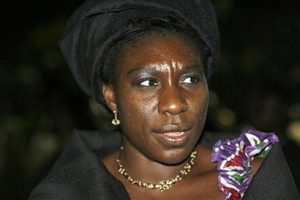
Iyabo Obasanjo-Bello is the eldest daughter of former President Olusegun Obasanjo and Oluremi Obasanjo. She previously served as the Commissioner for Health in Ogun State and later as a Senator representing Ogun Central. In April 2008, Iyabo came under EFCC investigation following the resignation of Health Minister Prof. Adenike Grange and her deputy Gabriel Aduku over allegations of embezzlement.
A ₦300 million unspent fund had allegedly been shared among ministry officials and key lawmakers, including members of Obasanjo’s committee. She was accused of receiving ₦10 million.
Iyabo denied any wrongdoing and said the money was spent on a conference in Ghana. When EFCC tried to arrest her, she even jumped over her fence to escape.
Unlike the ministers, who returned the funds and were arrested, Obasanjo reportedly refused to refund the money, claiming it had been used on a conference on capacity building, some members of the health committee attended in Ghana and denied any wrongdoing.
In a letter to EFCC, she explained, ”We started to expend the money for the retreat from January to pay estacode. Hotel rooms and airline tickets were bought for 11 senators and two officials of the committee.”
She added, “Their hotel rooms were paid for, and a consultant in Ghana was hired to arrange our meetings with the Ghanaian Ministry of Health and Ghanaian National Assembly.”
The former senator further stated that airline tickets from Lagos to Ghana were purchased for each of the 10 senators who attended the seminar. “The committee had the retreat with 10 members attending for four days at the La Palm Royal Hotel in Ghana,” she wrote.
“Monies were also expended on internal (local) transportation to Lagos for all senators. All monies have been fully expended.”
Reports indicated that she refused to appear before the EFCC or the courts, describing the charges as “blackmail” and claiming she was targeted because of her famous maiden name. At one point, when EFCC agents came to arrest her at her Abuja home, she allegedly jumped over her fence to avoid arrest.
In 2009, the case was thrown out of court due to a lack of evidence. She tried to return to politics in 2011, but Iyabo lost her senate seat to Gbenga Obadara of the Action Congress of Nigeria.
After her defeat, she reportedly withdrew from politics and moved abroad. For over ten years, she remained out of the public eye, working as a university teacher overseas. Recently, however, she made a surprising public appearance at an event in Abeokuta in 2023 to honour the immediate past Nigerian High Commissioner to the United Kingdom, Ambassador Sarafa Tunji-Ishola.



